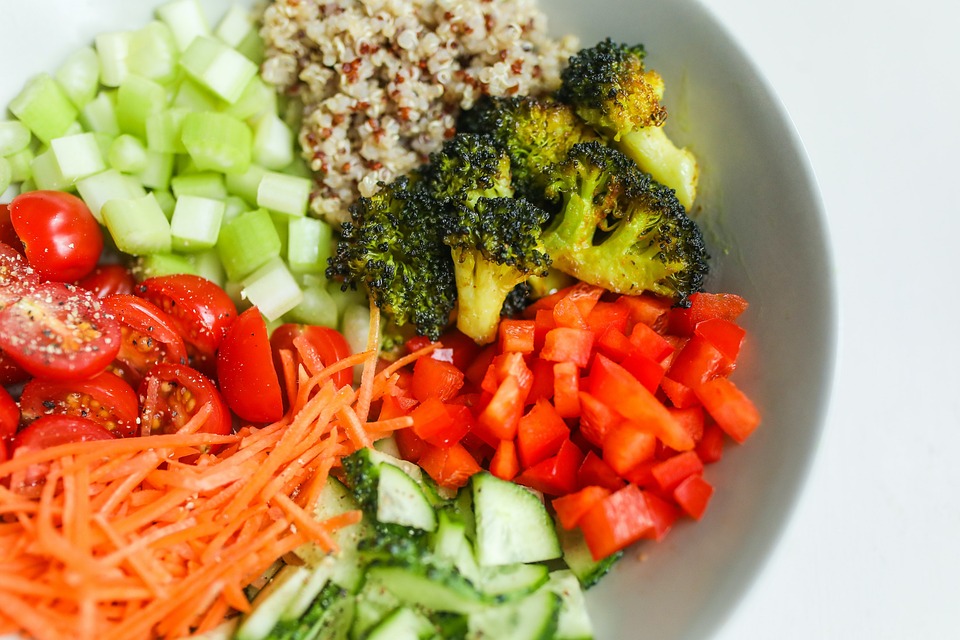Meal Planning Made Easy: Tips from Professional Nutritionists
Meal planning can often feel like a daunting task, especially in our fast-paced lives where time is a luxury. However, with the right strategies and expert insights, meal planning can become a seamless part of your routine. This article provides you with practical tips and advice from professional nutritionists to help you plan your meals effectively, promote healthier eating habits, and save time and money.
Understanding Meal Planning
Before diving into strategies, it’s essential to understand what meal planning involves. At its core, meal planning is the process of preparing meals in advance for a specific time frame, be it a week, month, or day. This practice allows individuals to make healthier food choices, minimize food waste, and ultimately save money.
Benefits of Meal Planning
-
Healthier Choices: When you plan meals, you can incorporate a variety of nutrients and limit processed foods.
-
Saves Time: Preparing meals in bulk or deciding what to cook ahead of time can save you from last-minute cooking scrambles.
-
Budget-Friendly: Planning meals helps reduce impulse spending on food, allowing you to make the most of your grocery budget.
-
Reduces Stress: Knowing what to cook for each meal reduces the cognitive load and alleviates stress.
- Encourages Variety: Meal planning enables you to experiment with new recipes and ingredients.
Tips from Professional Nutritionists
1. Set Clear Goals
Professional nutritionists emphasize the importance of setting realistic goals for your meal planning. Whether you want to eat more vegetables or limit sugar intake, having specific objectives can guide your planning efforts. Dr. Sara Bleich, a noted nutritionist, suggests writing down your goals and keeping them visible in your kitchen.
2. Create a Master List of Recipes
Having a repertoire of tried-and-true recipes can simplify meal planning. Nutritionist Elizabeth Ward recommends creating a master list of recipes that include a balance of proteins, carbohydrates, and healthy fats. This list should consist of meals you and your family genuinely enjoy, which will make planning and preparing food more enjoyable.
3. Plan for the Week Ahead
Setting aside time to plan meals for the upcoming week is crucial. Dr. Julie McCullough, a registered dietitian, advises dedicating one day a week, such as Sunday, for meal prepping. During this time, align your meals with your schedule and any events or activities you have planned.
4. Use the “Batch Cooking” Method
Batch cooking is an efficient way to prepare meals for the week. This method involves cooking large portions of food at once and storing them in portion-sized containers for future meals. Nutritionist and meal prep expert, Jess Cording, suggests preparing staple items such as grains, proteins, and vegetables that can be mixed and matched throughout the week.
5. Prioritize Whole Foods
Dietitian Kelly Jones emphasizes the importance of whole foods in meal planning. Incorporating unprocessed foods like fresh fruits, vegetables, whole grains, and lean proteins will provide your body with essential nutrients. Make a shopping list that reflects whole food options, keeping packaged foods to a minimum.
6. Keep it Seasonal
Using seasonal produce can enhance the flavor of your meals while also being cost-effective. According to nutritionist Melissa Joy Dobbins, buying fruits and vegetables that are in season can offer savings and also promote a diet rich in variety. Research what fruits and vegetables are in season in your area and incorporate these into your meal plans.
7. Make Use of Leftovers
Leftovers can be a lifesaver in meal planning. By cooking extra portions during dinner, you can easily repurpose them for lunch or dinner the next day. Nutritionist Christy Brissette advocates for creativity, suggesting ways to transform leftovers into salads, quesadillas, or grain bowls.
8. Use Technology to Your Advantage
Technology can be a great ally in meal planning. Numerous apps and websites can assist you in creating shopping lists, tracking nutritional value, and finding new recipes. Nutritionist Keri Glassman recommends tools like meal planning applications to simplify the entire process.
9. Stay Flexible
While planning is essential, it’s equally important to remain flexible. Life can be unpredictable, and there will be days when you may need to adjust your meal plan. Dr. Susan Mitchell advises allowing yourself the freedom to switch meals around based on mood, time, or available ingredients.
10. Shop Smart
Developing smart shopping habits can make meal planning more accessible. Nutritionist Haylie Pomroy emphasizes the importance of creating a grocery list based on your meal plan. Sticking to the list can help you resist impulse buys and ensure you have all the ingredients needed to prepare healthy meals.
11. Batch Freezing Items
Freezing meals can preserve the freshness of your food and offer convenient meal options. Many nutritionists suggest preparing meals that freeze well, such as soups, stews, or casseroles. This proactive approach ensures you have nutritious meals ready to go even on the busiest days.
12. Involve the Family
Getting family members involved in meal planning can make the process more enjoyable and foster a sense of collaboration. Registered dietitian Dawn Jackson Blatner suggests holding family meetings to discuss meal ideas, dietary preferences, and fun themes for the week, such as "Taco Tuesday" or "Pasta Night."
13. Balance Nutrients
When planning meals, consider the balance of macronutrients (carbohydrates, proteins, and fats) in each dish. Nutritionists recommend filling half of your plate with vegetables, a quarter with lean protein, and a quarter with whole grains to create balanced meals.
14. Experiment with Meal Kits
If you’re new to meal planning or lack time, meal kits can be an excellent way to ease into the process. These kits come with pre-portioned ingredients and recipes, which can help you save time in the kitchen. Nutritionist Eliza Kingsford suggests this method as an excellent way for beginners to gain confidence in cooking.
15. Build in Snacks
Don’t forget about snacks! Healthy snacking is a crucial component of any meal plan. Nutritionist Lara Mather recommends including a variety of healthy snacks, such as fruits, nuts, and yogurt, to keep your energy levels stable and hunger at bay.
16. Don’t Fear Repetition
Repetition isn’t necessarily a bad thing in meal planning. While variety is essential, eating similar meals multiple times a week can reduce prep time and make grocery shopping more straightforward. Nutritionist Nicole Rodriguez says that familiar meals can add a comforting routine to your food choices.
17. Track Your Progress
Regularly assessing your meal plan can help you identify what works and what doesn’t. Dr. Susan Albers recommends keeping a food journal to track what you ate, how you felt about it, and any prompts for future meal planning. This feedback loop will help you refine your strategies.
Conclusion
Meal planning doesn’t have to be overwhelming. By implementing the above strategies, you can create a cohesive meal plan that fits your lifestyle, promotes healthier eating, and saves you time and money. As nutritionists emphasize, the key is consistency and flexibility—finding what works best for you and your family. With practice, meal planning will not only become second nature but will also enhance your overall well-being.
Remember, the goal of meal planning is to make your life easier and your meals more enjoyable. By investing time into planning, you’re setting yourself up for success in your health journey. Happy meal planning!
References
- Bleich, S. (2021). Setting clear goals in meal planning. Nutrition Today.
- Ward, E. (2020). Recipe repertoire: Building a master list for meal planning. Journal of Nutrition Education.
- McCullough, J. (2019). Meal prepping techniques for busy lives. Health and Fitness Review.
- Cording, J. (2021). Batch cooking: A solution for meal prep. Nutrition Solutions.
- Jones, K. (2020). Importance of whole foods in meal planning. Food and Nutrition.
- Dobbins, M. J. (2021). Seasonal produce: Benefits and strategies for meal planning. Sustainable Eating Journal.
- Brissette, C. (2020). Transforming leftovers into new meals. Culinary Nutrition.
- Glassman, K. (2019). Tech tools to streamline meal planning. Digital Nutrition.
- Mitchell, S. (2021). Flexibility in meal planning: Why it’s vital. Health Psychology.
- Pomroy, H. (2020). Smart grocery shopping strategies for meal prep. Grocery Science Journal.
- Kingsford, E. (2021). Exploring meal kits: A beginner’s guide. Cooking for Wellness.
- Mather, L. (2019). The importance of snacks in meal planning. Nutrition Essentials.
- Rodriguez, N. (2020). The value of repetition in meal choices. Culinary Insights.
- Albers, S. (2021). Tracking progress in meal planning. Behavioral Nutrition.
This article is a comprehensive guide based on insights from professional nutritionists in the field. It aims to serve as a valuable resource for anyone looking to simplify their meal planning process while enhancing their overall health and nutrition.


























Add Comment